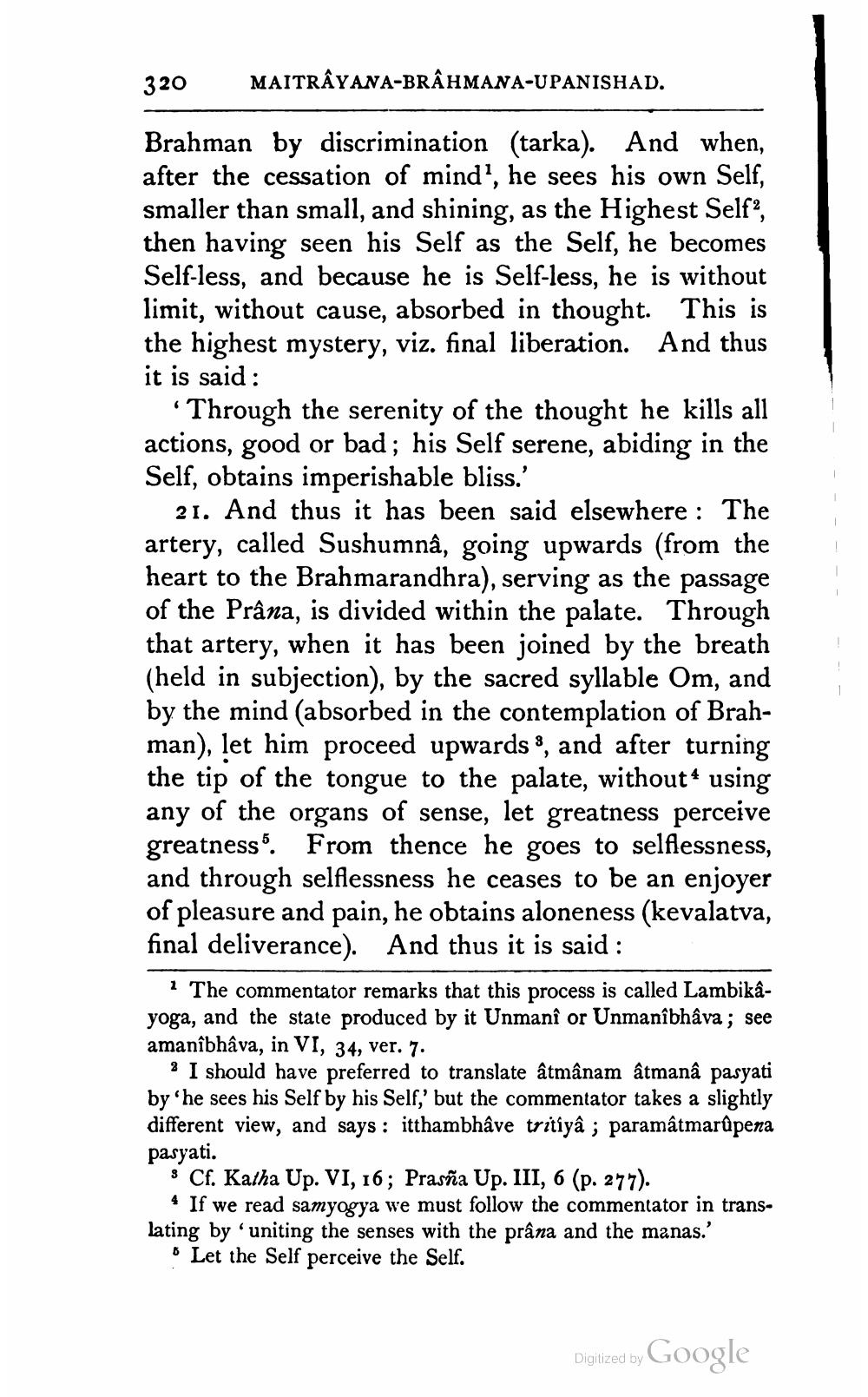________________
320
MAITRAYANA-BRAHMANA-UPANISHAD.
Brahman by discrimination (tarka). And when, after the cessation of mind', he sees his own Self, smaller than small, and shining, as the Highest Self2, then having seen his Self as the Self, he becomes Self-less, and because he is Self-less, he is without limit, without cause, absorbed in thought. This is the highest mystery, viz. final liberation. And thus it is said:
'Through the serenity of the thought he kills all actions, good or bad; his Self serene, abiding in the Self, obtains imperishable bliss.'
21. And thus it has been said elsewhere: The artery, called Sushumnâ, going upwards (from the heart to the Brahmarandhra), serving as the passage of the Prâna, is divided within the palate. Through that artery, when it has been joined by the breath (held in subjection), by the sacred syllable Om, and by the mind (absorbed in the contemplation of Brahman), let him proceed upwards 3, and after turning the tip of the tongue to the palate, without using any of the organs of sense, let greatness perceive greatness. From thence he goes to selflessness, and through selflessness he ceases to be an enjoyer of pleasure and pain, he obtains aloneness (kevalatva, final deliverance). And thus it is said:
1 The commentator remarks that this process is called Lambikâyoga, and the state produced by it Unmanî or Unmanîbhâva; see amanîbhâva, in VI, 34, ver. 7.
3 I should have preferred to translate âtmânam âtmanâ pasyati by 'he sees his Self by his Self,' but the commentator takes a slightly different view, and says: itthambhâve tritiyâ; paramâtmarûpena pasyati.
8 Cf. Katha Up. VI, 16; Prasña Up. III, 6 (p. 277).
* If we read samyogya we must follow the commentator in translating by uniting the senses with the prâna and the manas.'
Let the Self perceive the Self.
Digitized by
Google
!




